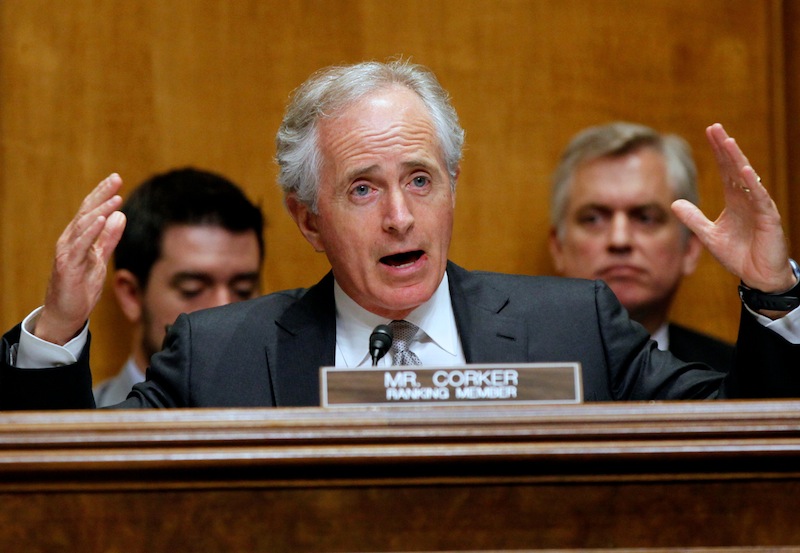Despite glimmers of hope to the contrary, the era of crisis governance is poised to continue.
After a Thursday meeting with White House officials, two Republican senators involved in months-long negotiations ruled out a broad budget agreement, as party leaders seek a way to avert a government shutdown and debt default in the coming weeks.
“This is just not going to happen at this time,” Sen. Bob Corker (R-TN) said, according to the New York Times. “There’s no point in continuing to act as if these discussions are leading some place.”
Sen. Lindsey Graham (R-SC) backed him up: “In America, you have to believe there’s a pathway forward, but right now, I don’t see it.”
The two senators had supported the idea of a budget compromise with a mix of spending cuts and revenues, frustrated with the all-or-nothing ideological approach of more conservative Republicans in both chambers. Senate Democrats had hoped to win over enough GOP members to pass a budget compromise, and pressure House Republicans. President Obama, who began seeking a budget agreement with Senate Republicans months after re-election, has been open to spending cuts — but only as part of a big, balanced deal that includes revenues. But now those Senate Republicans don’t think a deal is possible.
What remains unclear is whether the talks broke down because of unresolvable substantive disagreements between those Republican senators and Democrats — or because neither side could come up with the contours of a deal that would fly with conservatives in the House.
For its part, the White House is not willing to throw in the towel quite yet, however.
“We appreciated the meeting, which continued the series of candid — and helpful — exchanges,” a White House official told TPM. “On matters related to the budget, the President has always been clear that closing tax loopholes that benefit the wealthy had to be part of any big deal. That’s been clear for several years.”
The breakdown in the talks, which have been going on intermittently for months, comes ahead of a Sept. 30 deadline to keep the federal government funded or face a shutdown, and a mid-October deadline to raise the country’s borrowing limit or let the U.S. default on its debt. Prospects of a budget deal that resolves the underlying disputes were already unlikely in time to avoid crisis, but they now appear all but dead.
“It’s very evident that there just isn’t common ground at present,” Corker said, according to the Washington Post, “and we’ve all agreed there’s no reason for these talks to continue.”






